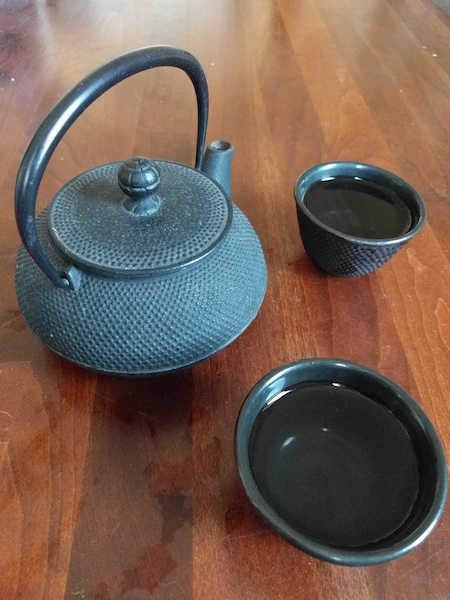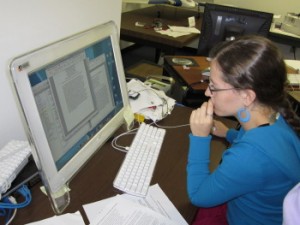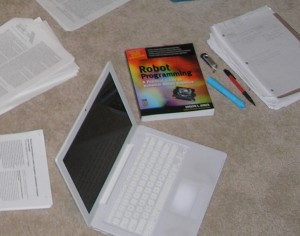
Considering applying to graduate school? Or enrolled already, but second guessing your decision?
I was talking with another mom at the park last week. Her husband had a PhD, but wasn't using it much in his career. He hadn't gone into academia, or even into research. That's frequently the case for PhDs. Sure, having the credential could be helpful in landing gigs. But … "Is going to grad school worth it?" she asked me.
No, graduate school is not always worth it. The key is deciding whether it is worth it for you, right now. Many factors go into your decision: personal, practical, financial.
Can you afford grad school?
Graduate school is a notoriously expensive investment. The expected payoff is that you will earn a higher income and attain a more desirable career as a result. But is this actually true?
It depends entirely on your field and your personal career goals.
Many students end up in debt. You're more likely to pay for your degree and take on debt if you are pursuing a degree in the social sciences or humanities, or for a professional degree such as an MD or JD. In STEM fields, and some social sciences, you are more likely to find funding, such as a scholarship or fellowship, for your studies—but it's not guaranteed!
Consider your finances carefully before jumping into grad school.
Does a graduate degree help you?
Going to grad school can help you achieve your career goals… but it can also hurt. Many PhDs don't become professors or go into research—like my friend's husband. That means they've trained for a job they don't have. What do they do instead? All kinds of things. But when you choose a career path that doesn't require a graduate degree, the people who started that path before you—without attending grad school—may be seen as more qualified and may be hired or promoted over you.
Think carefully about your potential career paths up front. Revisit your plans regularly and consider your options.
(Read: [How I Built a Career from Strengths and Interests—and How Your Kids Can, Too](https://deliberateowl.com/blog/how-i-built-career-from-strengths-interests-how-kids-can-too))
Do your career goals require a graduate degree?
If your career goals require a graduate degree, then you should carefully evaluate whether a graduate degree is the only possible path to that career.
Professional degrees can often be required for a particular career path—such as a JD for lawyers.
If you're in the humanities, and some social sciences, grad school is less likely to be worth it. You're more likely to end up in debt, because there's as not much funding available for advanced humanities degrees, at either the Master's or PhD level. An advanced humanities degree is not required for many careers. If you want to be a professor, sure; but there are few tenure-track positions available, and the adjunct life is only appealing in certain cases.
In STEM fields, and some social sciences, grad school can be a useful stepping stone to a wider variety of careers—professorships, government research, and industry research. Many higher up positions in research-heavy fields require a Master's or PhD. Some, however, may just as easily accept an equivalent number of years of experience. Do your career goals require a graduate degree?
Do your personal goals allow for a graduate degree?
Even if your career requires a graduate degree, your broader life goals may not. Grad school takes a long time. Master's programs are generally one or two years. A PhD can take up to a decade, depending on the program and your field. A decade is a long time.
What else are you putting on hold while you're in school? What are your other personal goals for your life? Do you want to live in a particular place? Do you want a family? You may already have roots in a particular place, or a family, or a spouse's career to consider. These factors impact your decision to attend grad school—or not. What do you have to give up? What else could you be doing?
(Read: [Why I Went To Graduate School](https://deliberateowl.com/blog/why-i-went-to-graduate-school))
Does going to grad school help you?
Ask yourself these questions:
-
What do I value? How do I live out my values?
What career do I want? Why? What are the different ways I could pursue this career? Is graduate school absolutely necessary, or can I learn what is needed in another way? Are there similar careers equally appealing that require less schooling?
What are my financial goals? Does graduate school help me reach them?
Can I afford more school? Is it worth it? Can I trade time and money for the future payout of a more desirable career?
What's the opportunity cost? What could I be doing instead? What am I giving up to attend graduate school?
Think about where you want to be in five years, or ten years. If you were at the end of your life looking back, what would you wish you had done more of—or less of? Who would you wish you had spent more time with?
Make sure your plans line up with your priorities. Don't go to grad school by default. Only go if it's the best option for you and helps you learn and achieve what you want to learn and achieve.
Like this post? You'll find even more detailed advice about managing grad school and life in my new book, Grad School Life: Surviving and Thriving Beyond Coursework and Research. Order it today!








